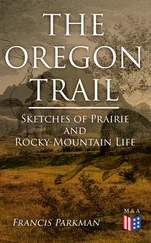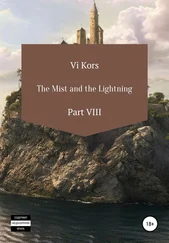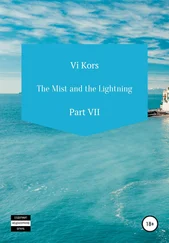Francis Parkman - France and England in N America, Part VII, Vol 1 - A Half-Century of Conflict
Здесь есть возможность читать онлайн «Francis Parkman - France and England in N America, Part VII, Vol 1 - A Half-Century of Conflict» — ознакомительный отрывок электронной книги совершенно бесплатно, а после прочтения отрывка купить полную версию. В некоторых случаях можно слушать аудио, скачать через торрент в формате fb2 и присутствует краткое содержание. Жанр: foreign_prose, История, foreign_edu, foreign_antique, на английском языке. Описание произведения, (предисловие) а так же отзывы посетителей доступны на портале библиотеки ЛибКат.
- Название:France and England in N America, Part VII, Vol 1: A Half-Century of Conflict
- Автор:
- Жанр:
- Год:неизвестен
- ISBN:нет данных
- Рейтинг книги:3 / 5. Голосов: 1
-
Избранное:Добавить в избранное
- Отзывы:
-
Ваша оценка:
- 60
- 1
- 2
- 3
- 4
- 5
France and England in N America, Part VII, Vol 1: A Half-Century of Conflict: краткое содержание, описание и аннотация
Предлагаем к чтению аннотацию, описание, краткое содержание или предисловие (зависит от того, что написал сам автор книги «France and England in N America, Part VII, Vol 1: A Half-Century of Conflict»). Если вы не нашли необходимую информацию о книге — напишите в комментариях, мы постараемся отыскать её.
France and England in N America, Part VII, Vol 1: A Half-Century of Conflict — читать онлайн ознакомительный отрывок
Ниже представлен текст книги, разбитый по страницам. Система сохранения места последней прочитанной страницы, позволяет с удобством читать онлайн бесплатно книгу «France and England in N America, Part VII, Vol 1: A Half-Century of Conflict», без необходимости каждый раз заново искать на чём Вы остановились. Поставьте закладку, и сможете в любой момент перейти на страницу, на которой закончили чтение.
Интервал:
Закладка:
They were received at Quebec with a courtesy qualified by extreme caution, lest they should spy out the secrets of the land. The mission was not very successful, though the elder Dudley had now a good number of French prisoners in his hands, captured in Acadia or on the adjacent seas. A few only of the English were released, including the boy, Stephen Williams, whom Vaudreuil had bought for forty crowns from his Indian master.
In the following winter John Sheldon made another journey on foot to Canada, with larger powers than before. He arrived in March, 1706, and returned with forty-four of his released countrymen, who, says Williams, were chiefly adults permitted to go because there was no hope of converting them. The English governor had by this time seen the necessity of greater concessions, and had even consented to release the noted Captain Baptiste, whom the Boston merchants regarded as a pirate. In the same summer Samuel Appleton and John Bonner, in the brigantine "Hope," brought a considerable number of French prisoners to Quebec, and returned to Boston at the end of October with fifty-seven English, of all ages. For three, at least, of this number money was paid by the English, probably on account of prisoners bought by Frenchmen from the Indians. The minister, Williams, was exchanged for Baptiste, the so-called pirate, and two of his children were also redeemed, though the Caughnawagas, or their missionaries, refused to part with his daughter Eunice. Williams says that the priests made great efforts to induce the prisoners to remain in Canada, tempting some with the prospect of pensions from the King, and frightening others with promises of damnation, joined with predictions of shipwreck on the way home. He thinks that about one hundred were left in Canada, many of whom were children in the hands of the Indians, who could easily hide them in the woods, and who were known in some cases to have done so. Seven more were redeemed in the following year by the indefatigable Sheldon, on a third visit to Canada. 71
The exchanged prisoners had been captured at various times and places. Those from Deerfield amounted in all to about sixty, or a little more than half the whole number carried off. Most of the others were dead or converted. Some married Canadians, and others their fellow-captives. The history of some of them can be traced with certainty. Thus, Thomas French, blacksmith and town clerk of Deerfield, and deacon of the church, was captured, with his wife and six children. His wife and infant child were killed on the way to Canada. He and his two eldest children were exchanged and brought home. His daughter Freedom was converted, baptized under the name of Marie Françoise, and married to Jean Daulnay, a Canadian. His daughter Martha was baptized as Marguerite, and married to Jacques Roy, on whose death she married Jean Louis Ménard, by whom she became ancestress of Joseph Plessis, eleventh bishop of Quebec. Elizabeth Corse, eight years old when captured, was baptized under her own name, and married to Jean Dumontel. Abigail Stebbins, baptized as Marguerite, lived many years at Boucherville, wife of Jacques de Noyon, a sergeant in the colony troops. The widow, Sarah Hurst, whose youngest child, Benjamin, had been murdered on the Deerfield meadows, was baptized as Marie Jeanne. 72Joanna Kellogg, eleven years old when taken, married a Caughnawaga chief, and became, at all points, an Indian squaw.
She was not alone in this strange transformation. Eunice Williams, the namesake of her slaughtered mother, remained in the wigwams of the Caughnawagas, forgot, as we have seen, her English and her catechism, was baptized, and in due time married to an Indian of the tribe, who thenceforward called himself Williams. Thus her hybrid children bore her family name. Her father, who returned to his parish at Deerfield, and her brother Stephen, who became a minister like his parent, never ceased to pray for her return to her country and her faith. Many years after, in 1740, she came with her husband to visit her relatives in Deerfield, dressed as a squaw and wrapped in an Indian blanket. Nothing would induce her to stay, though she was persuaded on one occasion to put on a civilized dress and go to church; after which she impatiently discarded her gown and resumed her blanket. As she was kindly treated by her relatives, and as no attempt was made to detain her against her will, she came again in the next year, bringing two of her half-breed children, and twice afterwards repeated the visit. She and her husband were offered a tract of land if they would settle in New England; but she positively refused, saying that it would endanger her soul. She lived to a great age, a squaw to the last. 73
One of her grandsons, Eleazer Williams, turned Protestant, was educated at Dartmouth College at the charge of friends in New England, and was for a time missionary to the Indians of Green Bay, in Wisconsin. His character for veracity was not of the best. He deceived the excellent antiquarian, Hoyt, by various inventions touching the attack on Deerfield, and in the latter part of his life tried to pass himself off as the lost Dauphin, son of Louis XVI. 74
Here it may be observed that the descendants of young captives brought into Canada by the mission Indians during the various wars with the English colonies became a considerable element in the Canadian population. Perhaps the most prominent example is that of the Gill family. In June, 1697, a boy named Samuel Gill, then in his tenth year, was captured by the Abenakis at Salisbury in Massachusetts, carried to St. Francis, and converted. Some years later he married a young English girl, said to have been named James, and to have been captured at Kennebunk. 75In 1866 the late Abbé Maurault, missionary at St. Francis, computed their descendants at nine hundred and fifty-two, in whose veins French, English, and Abenaki blood were mixed in every conceivable proportion. He gives the tables of genealogy in full, and says that two hundred and thirteen of this prolific race still bear the surname of Gill. "If," concludes the worthy priest, "one should trace out all the English families brought into Canada by the Abenakis, one would be astonished at the number of persons who to-day are indebted to these savages for the blessing of being Catholics and the advantage of being Canadians," 76—an advantage for which French-Canadians are so ungrateful that they migrate to the United States by myriads.
CHAPTER V
Border Raids.—Haverhill.—Attack and Defence.—War to the Knife.—Motives of the French.—Proposed Neutrality.—Joseph Dudley.—Town and Country.
I have told the fate of Deerfield in full, as an example of the desolating raids which for years swept the borders of Massachusetts and New Hampshire. The rest of the miserable story may be passed more briefly. It is in the main a weary detail of the murder of one, two, three, or more men, women, or children waylaid in fields, woods, and lonely roads, or surprised in solitary cabins. Sometimes the attacks were on a larger scale. Thus, not long after the capture of Deerfield, a band of fifty or more Indians fell at dawn of day on a hamlet of five houses near Northampton. The alarm was sounded, and they were pursued. Eight of the prisoners were rescued, and three escaped; most of the others being knocked in the head by their captors. At Oyster River the Indians attacked a loopholed house, in which the women of the neighboring farms had taken refuge while the men were at work in the fields. The women disguised themselves in hats and jackets, fired from the loopholes, and drove off the assailants. In 1709 a hundred and eighty French and Indians again attacked Deerfield, but failed to surprise it, and were put to flight. At Dover, on a Sunday, while the people were at church, a scalping-party approached a fortified house, the garrison of which consisted of one woman,—Esther Jones, who, on seeing them, called out to an imaginary force within, "Here they are! come on! come on!" on which the Indians disappeared.
Читать дальшеИнтервал:
Закладка:
Похожие книги на «France and England in N America, Part VII, Vol 1: A Half-Century of Conflict»
Представляем Вашему вниманию похожие книги на «France and England in N America, Part VII, Vol 1: A Half-Century of Conflict» списком для выбора. Мы отобрали схожую по названию и смыслу литературу в надежде предоставить читателям больше вариантов отыскать новые, интересные, ещё непрочитанные произведения.
Обсуждение, отзывы о книге «France and England in N America, Part VII, Vol 1: A Half-Century of Conflict» и просто собственные мнения читателей. Оставьте ваши комментарии, напишите, что Вы думаете о произведении, его смысле или главных героях. Укажите что конкретно понравилось, а что нет, и почему Вы так считаете.












